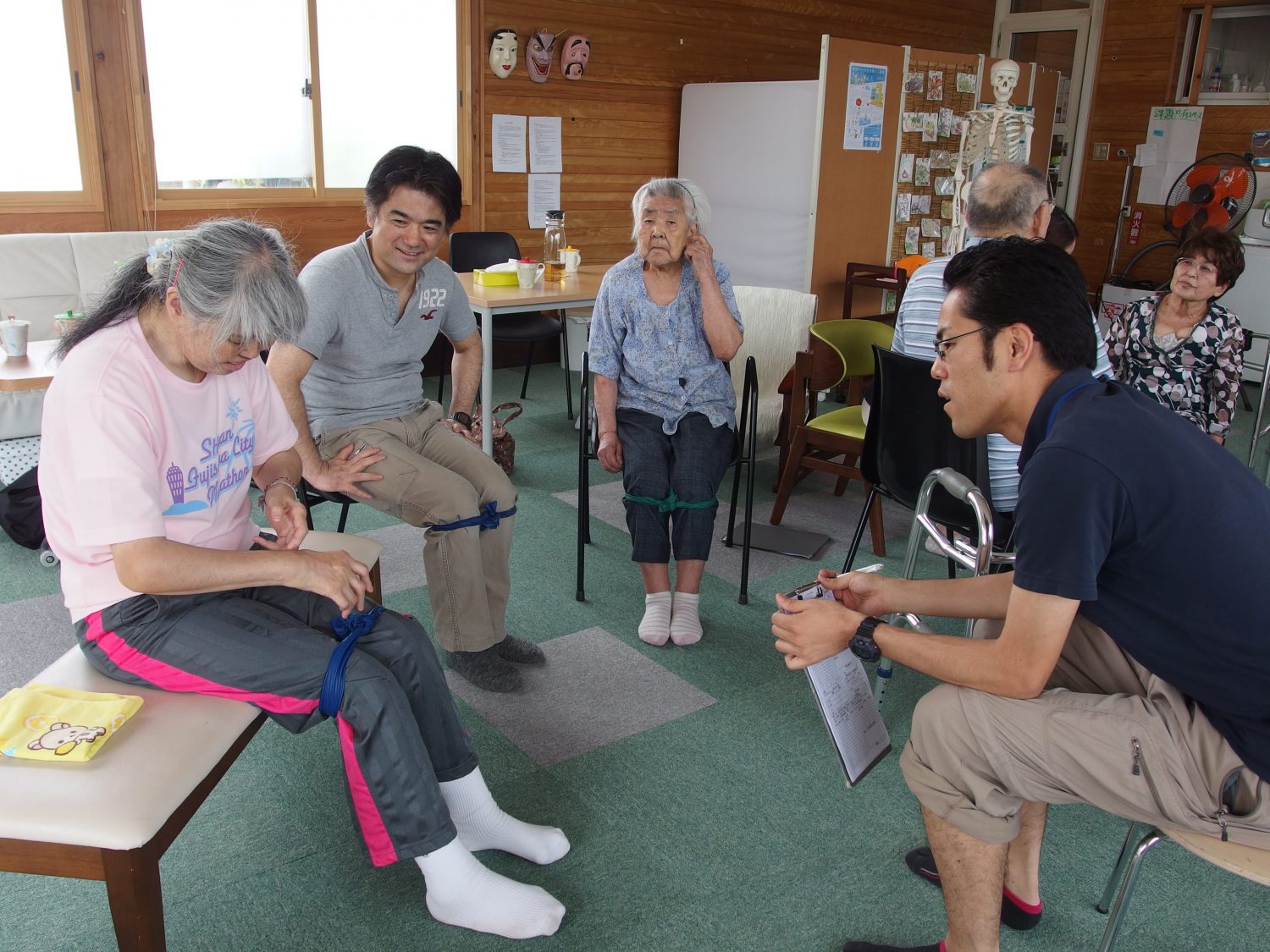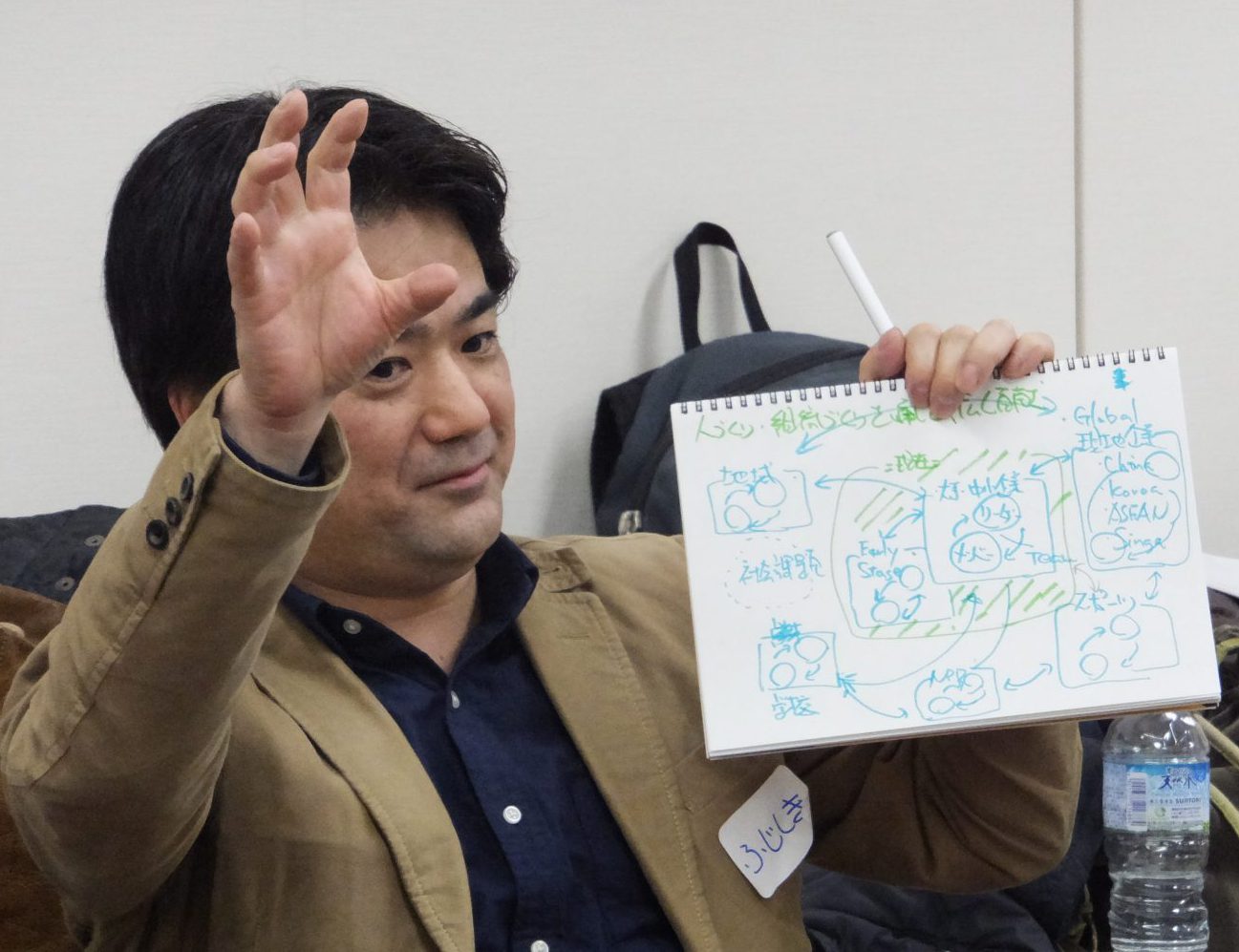We are excited to start interview articles with WIT Accelerators, who have been generously supporting WIT’s activities. I hope you will enjoy reading how WIT Accelerators are involved with WIT!
Our first interviewee is Mr. Keitaro Fujishima. See here for Keitaro’s profile.
Interviewer and article: Mio Yamamoto
Recorder: Risa Komatsu, WIT intern
Translater: Maho Harada, WIT pro bono
1. How did you become involved with WIT?
At Recruit Management Solutions (RMS), we support human resource development, organizational development and organizational change. Our corporate slogan, “Making the most of individuals and organizations,” has been steadily inherited from one generation to the next within the company. From its inception, our company has adhered to the principle that the performance of any organization is closely tied to its ability to release the potential of each individual within the organization.
I became a company executive three years ago, in April 2014. At first, I went through executive coaching for about 9 months. Throughout this experience, I had to develop my own vision. At the last session, this is what I came up with (Photo below) to show what I wanted to achieve.
Our company offers “to make the most of the individual and the organization” for a variety of businesses. Fortunately, we are a leading company in this area. But somehow, I felt we could do more. In January 2015, I thought, if we were to really “make the most of the individual and the organization,” we should be expanding the impact both globally and locally. On a global level, we now have bases in China and Korea that we’ve started to develop. But I wanted to explore how we could release the energy of the individual and vitalize the organization, and explore this for the local community as well as society as a whole.
Around the same time, I met up with Mr. Ohashi, who used to be my junior at RMS. After the Great East Japan Earthquake, he’d launched an organization called Asuiku to provide educational support for children. He told me about Mio (Executive Director of WIT). When I met her, I thought it was a great opportunity. So I decided to participate in the Learning Journey held in January 2015, and joined WIT as an Accelerator (called “Partner” at the time) in April.p>
2. Have you been involved in other nonprofits?
No, I’d never been involved in a nonprofit. Meeting Mio and joining WIT was my first experience. I’ll tell you my biggest reason for joining. I was here in the middle (in the photo above), a businessperson within a company. We were trying to support a nonprofit as a company, which can cause a lot of trouble with things like monetization because there are so many obstacles. It seemed difficult to think of how we could support a nonprofit as a business within my current position at RMS, or what the first point of contact should be. So I decided to join as an individual. But in the end, I’m doing what I want anyway. Next year, I started a partnership with Katariba, a certified nonprofit.
3. Please tell us about your involvement with WIT so far, what it has brought you, and any takeaways you’ve had.
So far, I’ve participated in three Learning Journeys and an investment committee to select WIT Entrepreneurs. I’ve also done mentoring for two of the WIT Entrepreneurs, GIFHOPE and Replus, and I was a panel speaker for an event about the employee turnover due to caregiving for their family members (hosted by ITOKI and WIT).
People involved with WIT are diverse and fascinating. They always stimulate me. For example, when I did mentoring for GIFTHOPE with Christina (WIT Senior Accelerator), she is always thinking about what is fundamentally important when she speaks.
I’ve also learned so much. Before I became involved with Replus, I knew very little about the care giving field. If I think about the organization’s monetization, it would be better to have their users use their day service for as long as possible. But Replus’ objective is to help their users get exercise so that they eventually won’t require care anymore. And it’s not just about exercising their bodies. For Replus, it was important that the users decide themselves what kind of lifestyle they wanted to live. This was really refreshing for me.
On the other hand, I often feel like I’m making a difference. If I can be useful by speaking with Mr. Daigo Hashimoto (Replus Director) for 1 hour on Skype, it makes me feel like I was able to make a difference in just 1 hour! (Laughs) Of course, we’d have to ask Daigo for his opinion, but it really feels like I’m able to make a difference.
4. In what way do you feel like you’re making a difference?
For example, in Daigo’s case, his thoughts weren’t organized in his mind. By talking about them with a third party like me, I feel that I was able to help him resolve interpersonal issues that weren’t necessarily logical. We also held sessions about communicating the organization’s vision internally. By leveraging my own professional experience, I think I’ve been able to make a difference.

Field visit to Replus during WIT Learning Journey (Daigo on the right, and Keitaro second from the left.)
5. I imagine that within the framework of your job, you were already meeting a lot of people and being stimulated in many ways. Are those encounters and stimulations any different from what you’ve experienced through the Learning Journeys and other activities with WIT?
I do meet a lot of people, but they’re mostly directors or leaders of top Japanese firms and ventures in Japan, and they only represent one aspect of society. I think people in nonprofits are tackling societal issues first-hand. Inevitably, corporations first look at profitability before getting involved, so they’re slow to engage in societal issues. I’m grateful because people in nonprofits who willingly stand at the forefront and tackle societal issues give me a long of strength and courage, and I learn so much about the issues they’re tackling.
Preventative care, the issue that Replus is tackling, is something that Japan will be facing more and more. The other day, I decided to discuss what I’d learned from Daigo’s lecture on preventative care with my wife and her parents. I asked them, “What kind of lifestyle do you want to live in your later years?” If it hadn’t been for my involvement with Replus, I wouldn’t have had this dialogue with them. I’m also grateful for these opportunities because they’ve opened my eyes to these kinds of issues.
— Thank you very much for reading! Please visit here for the second half of the interview.

